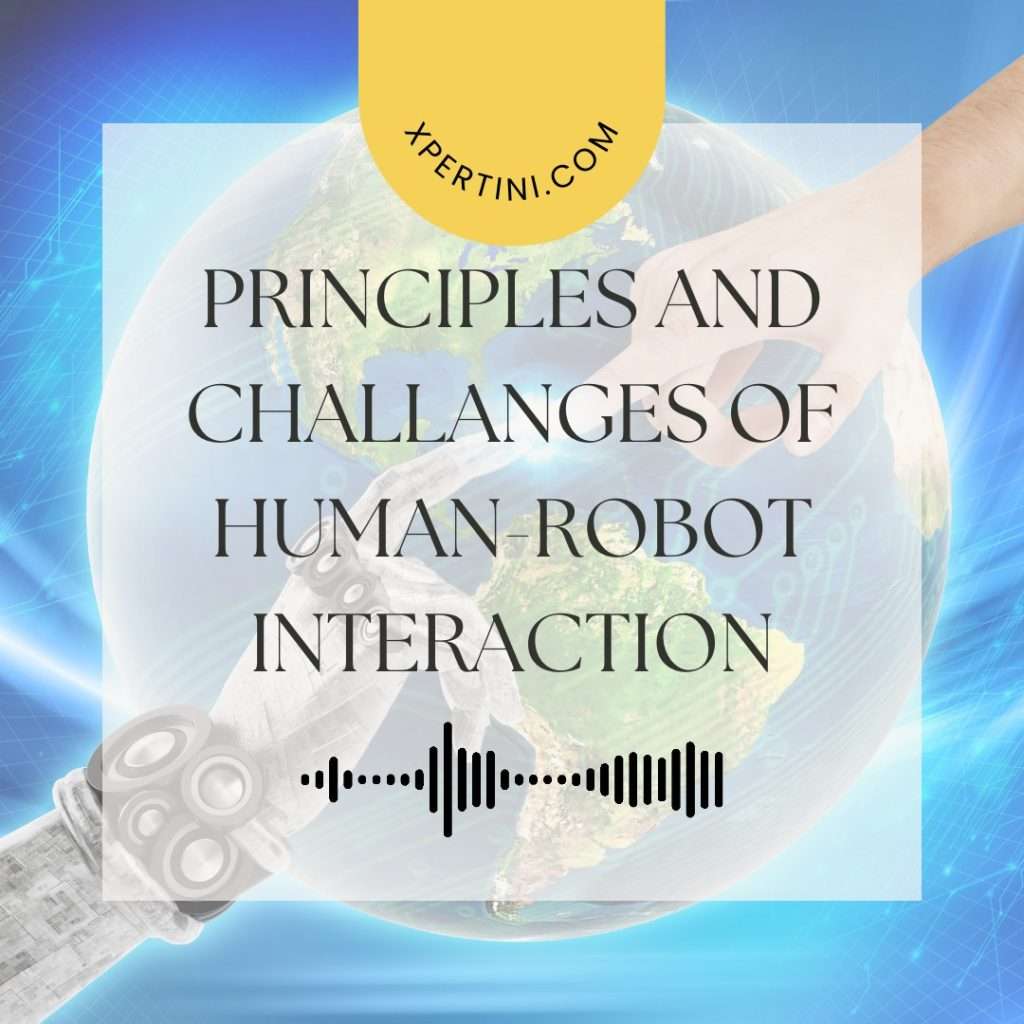Principles and Challanges of Human-Robot Interaction
Course Summary
In this comprehensive course on Human-Robot Interaction (HRI), participants delve into the landscape where humans and robots collaboratively engage. Exploring the foundational principles, the course navigates through the varied domains impacted by HRI. Robotics enthusiasts and those eyeing careers in this field gain insights into the multifaceted roles of robots, from caregivers in healthcare to interactive companions in education.
The course unfolds with an exploration of the theoretical underpinnings, guiding learners through the principles that govern effective HRI system design. It illuminates the significance of a user-centric approach, emphasizing usability, satisfaction, and overall system performance. Participants gain an understanding of evaluation methods, from surveys and questionnaires to observational studies and task performance metrics, ensuring the seamless integration of HRI systems into human environments.
Delving into the technical foundations, the course elucidates robotic hardware, sensors, and programming languages, empowering learners with the knowledge to architect and program sophisticated robotic systems. It unveils the future trends in HRI, showcasing the evolving landscape of human-robot collaboration and the integration of augmented reality and virtual environments. The transformative potential of these advancements across diverse domains, from healthcare to industrial automation, unfolds through insightful lessons.
Navigating through cultural and social aspects, participants comprehend the interplay between robots and societal norms. The course propels learners into the future, exploring advanced cognitive abilities in robots and their potential roles in healthcare, education, and entertainment. Finally, it guides individuals through career opportunities, outlining roles, responsibilities, and pathways for further education and research, arming them with the knowledge to start on a successful career in the HRI.
Course Overview
In the rapidly evolving landscape of technology, Human-Robot Interaction (HRI) stands at the forefront, shaping the future of various industries and societal interactions. This course delves into the fundamental principles and challenges associated with the relationship between humans and robots. Through theoretical understanding and practical applications, participants will gain insights into designing, implementing, and evaluating human-centered robotic systems.
Course Objectives
- Understand the foundational principles of human-robot interaction.
- Identify key challenges in HRI and their impact on system design.
- Explore various methodologies for designing and evaluating HRI systems.
- Analyze the impact of cultural, social, and psychological factors on HRI.
- Develop skills in designing intuitive and effective interfaces for robots.
- Learn techniques for enhancing communication and collaboration between humans and robots.
- Explore emerging trends and future directions in HRI research and development.
- Foster critical thinking and problem-solving abilities in the context of HRI.
- Prepare for potential career opportunities in the field of human-robot interaction.
Course Outcomes
- Describe the fundamental principles governing human-robot interaction.
- Identify and analyze challenges in HRI scenarios.
- Design and implement intuitive interfaces for human-robot communication.
- Evaluate the effectiveness of human-robot interaction systems.
- Analyze the impact of cultural differences on human-robot interactions.
- Apply psychological theories to understand human behavior in HRI contexts.
- Demonstrate proficiency in programming robotic systems for interaction tasks.
- Propose solutions to common challenges encountered in HRI implementation.
- Critically assess current research trends in the field of human-robot interaction.
- Explore career opportunities in academia, industry, and research related to HRI.
Course Audience
- Students interested in pursuing careers in robotics, artificial intelligence, or human-computer interaction.
- Professionals seeking to enhance their knowledge and skills in the domain of human-robot interaction.
- Researchers and academics interested in exploring the interdisciplinary aspects of HRI.

